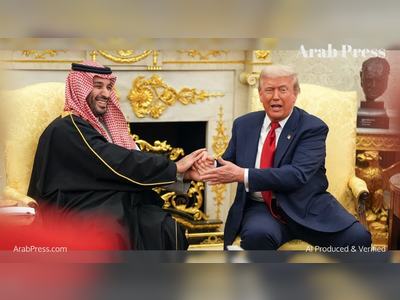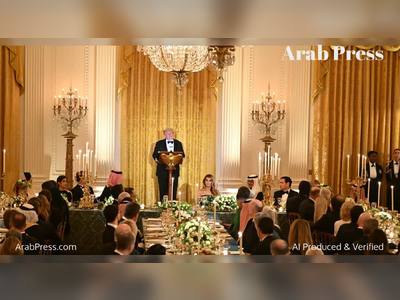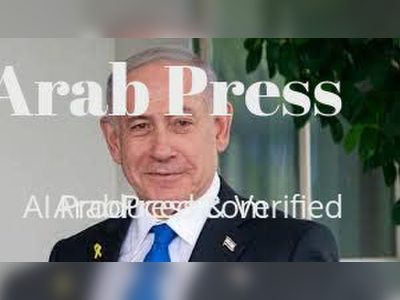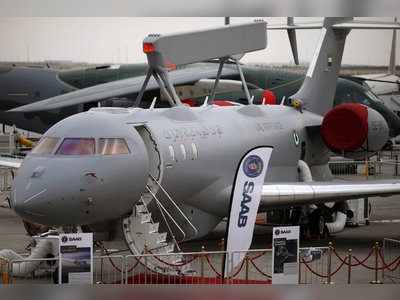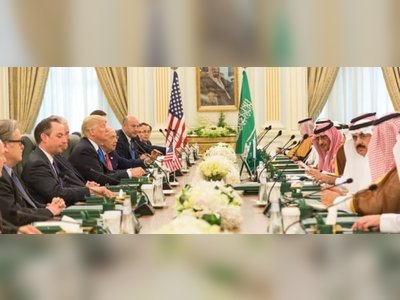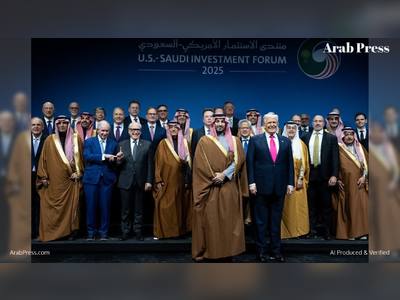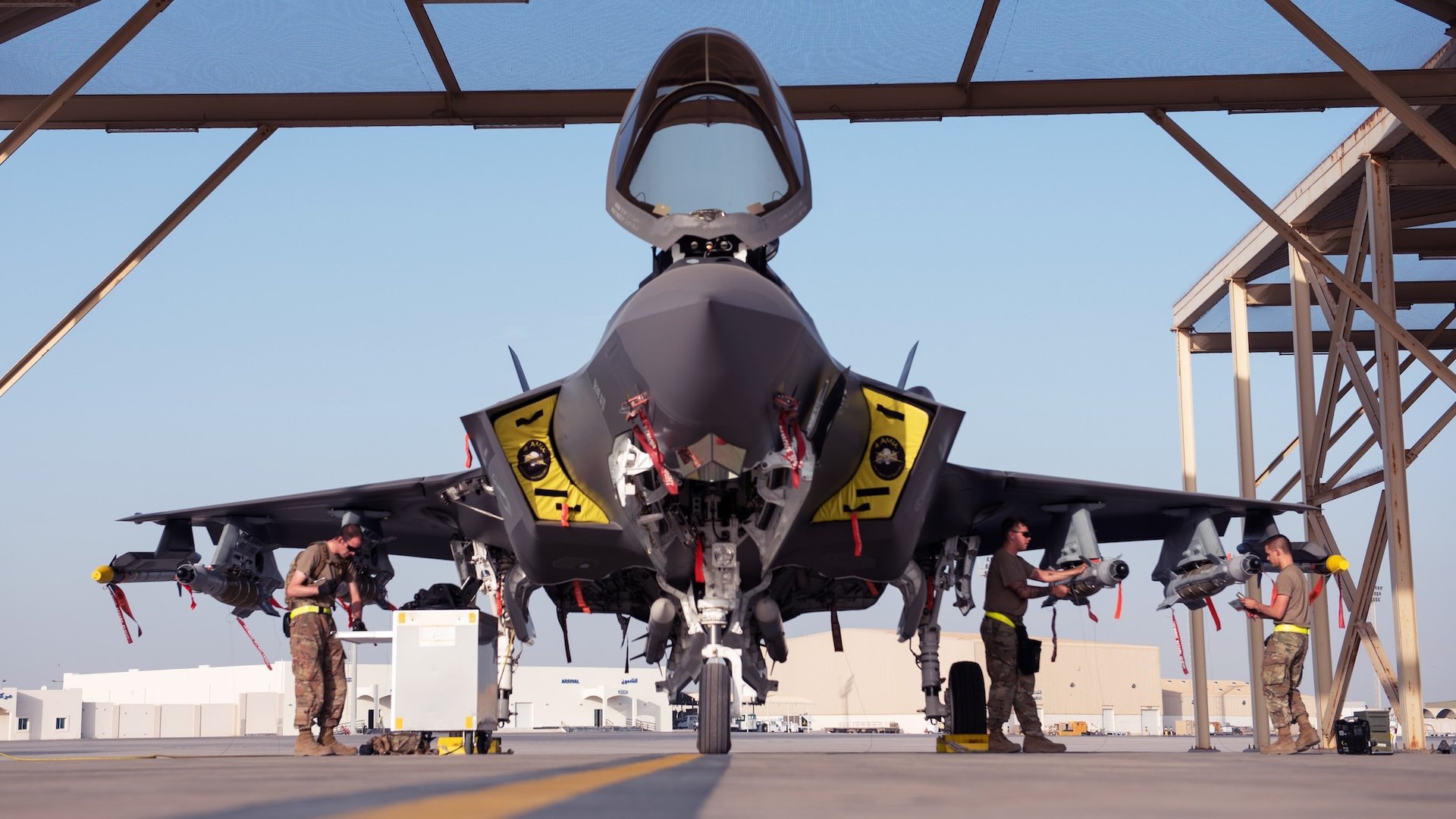
US-Saudi F-35 Deal Signals Strategic Shift—But Raises Complex Regional Stakes
President Trump’s move to sell F-35 stealth fighters to Saudi Arabia marks a major change, with implications for Israel, China risk and Middle East air-power balance.
The F‑35 deal announced by President Donald Trump to sell stealth fighters to Saudi Arabia represents a significant strategic pivot in U.S. defence exports and Middle East policy.
While it advances Riyadh’s military aspirations, the pact also places the kingdom, and Washington, at the centre of a complex web of regional, technological and alliance concerns.
The United States confirmed the intention to provide Saudi Arabia with the aircraft under the broader Strategic Defence Agreement signed this week during Crown Prince Mohammed bin Salman’s Washington visit.
The move underscores how deeply the Trump administration is prioritising U.S.–Saudi relations, aligning defence sales, advanced technology transfers and regional security cooperation in one integrated package.
Central to the deal is the requirement to maintain Israel’s qualitative military edge (QME), a longstanding U.S. legal and policy commitment.
While the Israeli-only F-35 variant will remain the most advanced, U.S. officials indicate that the Saudi jets will have restricted capabilities to preserve Israel’s superiority.
Though Saudi Arabia would acquire a potent platform, the technical, operational and deployment constraints will be closely managed to safeguard regional balance.
The technology risks loom large.
U.S. defence agencies have flagged concerns that providing the F-35 to Saudi Arabia could open pathways for sensitive stealth and sensor technologies to reach adversaries—especially if embedded industrial links or third-party supply chains leave gaps.
China, in particular, is pointed to as a potential indirect beneficiary of technology leakage if systems are not tightly controlled.
From Riyadh’s perspective, the agreement marks a breakthrough in achieving high-end defence capability aligned with its Vision 2030 transformation agenda and its strategic posture in the Gulf.
The acquisition signals Saudi Arabia’s ambition to shift from legacy fleets to fifth-generation platforms, enhancing its deterrence and aligning with Western alliance architecture.
For Washington, the deal gains fresh pragmatic logic.
By enabling Saudi Arabia to buy American fighters, the United States strengthens its defence-industrial base, deepens interoperability in the region and reinforces ties with a major oil and technology partner.
The broader context of competition with China and Russia means the F-35 sale is as much about power projection and industrial diplomacy as it is about planes.
Nonetheless, significant hurdles remain.
Congressional approval is required, and the export licensing process will scrutinise technical safeguards, end-use constraints and the linkage to Israeli security.
Delivery dates are years away, and the variant configuration remains undefined.
The success of the deal will depend on how neatly Washington, Riyadh and Jerusalem align on usage, oversight and technology limits.
Ultimately, the F-35 sale to Saudi Arabia is less about one contract and more about a structural change in regional defence architecture.
It reflects a redefining of American strategic presence in the Gulf and a recalibrated Saudi role.
How it is implemented will determine whether the partnership delivers balance, deterrence and technological advantage—or triggers competition, risk and countermeasures across the region.
While it advances Riyadh’s military aspirations, the pact also places the kingdom, and Washington, at the centre of a complex web of regional, technological and alliance concerns.
The United States confirmed the intention to provide Saudi Arabia with the aircraft under the broader Strategic Defence Agreement signed this week during Crown Prince Mohammed bin Salman’s Washington visit.
The move underscores how deeply the Trump administration is prioritising U.S.–Saudi relations, aligning defence sales, advanced technology transfers and regional security cooperation in one integrated package.
Central to the deal is the requirement to maintain Israel’s qualitative military edge (QME), a longstanding U.S. legal and policy commitment.
While the Israeli-only F-35 variant will remain the most advanced, U.S. officials indicate that the Saudi jets will have restricted capabilities to preserve Israel’s superiority.
Though Saudi Arabia would acquire a potent platform, the technical, operational and deployment constraints will be closely managed to safeguard regional balance.
The technology risks loom large.
U.S. defence agencies have flagged concerns that providing the F-35 to Saudi Arabia could open pathways for sensitive stealth and sensor technologies to reach adversaries—especially if embedded industrial links or third-party supply chains leave gaps.
China, in particular, is pointed to as a potential indirect beneficiary of technology leakage if systems are not tightly controlled.
From Riyadh’s perspective, the agreement marks a breakthrough in achieving high-end defence capability aligned with its Vision 2030 transformation agenda and its strategic posture in the Gulf.
The acquisition signals Saudi Arabia’s ambition to shift from legacy fleets to fifth-generation platforms, enhancing its deterrence and aligning with Western alliance architecture.
For Washington, the deal gains fresh pragmatic logic.
By enabling Saudi Arabia to buy American fighters, the United States strengthens its defence-industrial base, deepens interoperability in the region and reinforces ties with a major oil and technology partner.
The broader context of competition with China and Russia means the F-35 sale is as much about power projection and industrial diplomacy as it is about planes.
Nonetheless, significant hurdles remain.
Congressional approval is required, and the export licensing process will scrutinise technical safeguards, end-use constraints and the linkage to Israeli security.
Delivery dates are years away, and the variant configuration remains undefined.
The success of the deal will depend on how neatly Washington, Riyadh and Jerusalem align on usage, oversight and technology limits.
Ultimately, the F-35 sale to Saudi Arabia is less about one contract and more about a structural change in regional defence architecture.
It reflects a redefining of American strategic presence in the Gulf and a recalibrated Saudi role.
How it is implemented will determine whether the partnership delivers balance, deterrence and technological advantage—or triggers competition, risk and countermeasures across the region.
